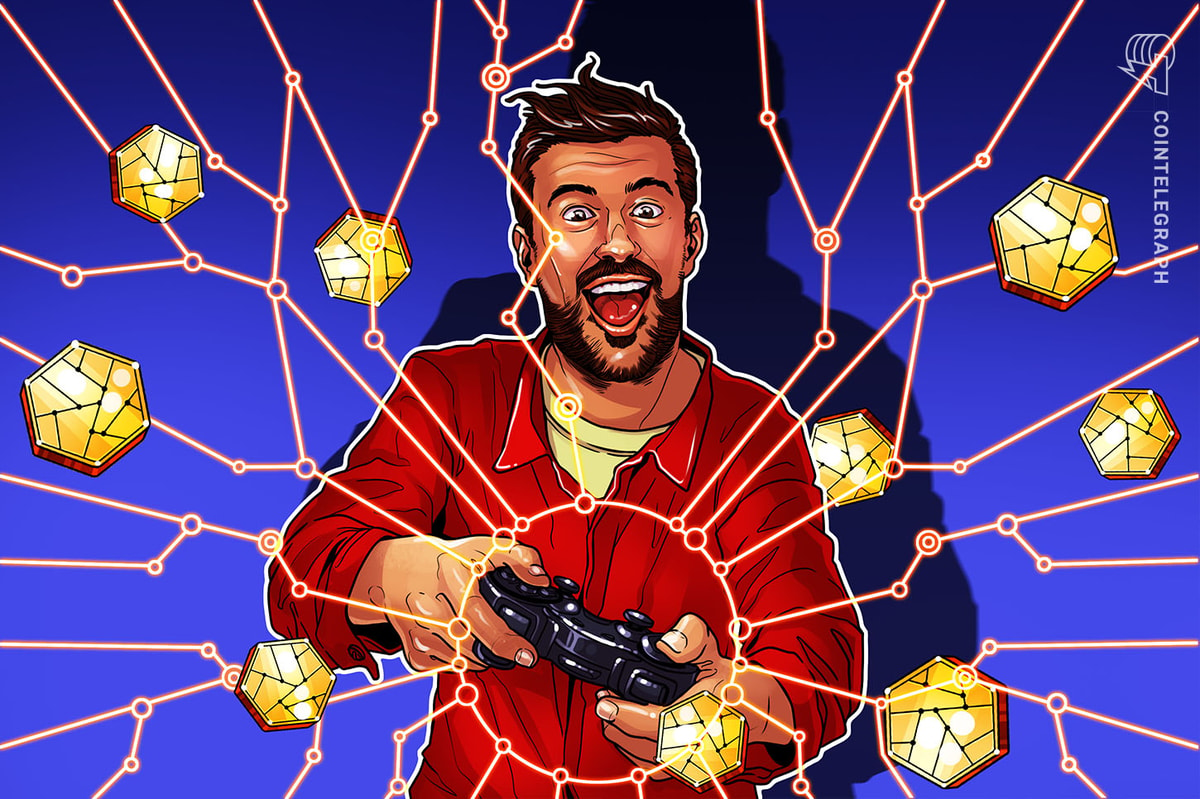Blockchain games are mostly played for entertainment, but some developers within the industry think the games could eventually evolve into a form of employment where players can grind out a living wage.
Video games using blockchain tech allow players to earn native crypto or nonfungible tokens (NFTs) by playing and participating in activities within the virtual world. Users can then trade or sell their rewards to others and convert them to fiat currency or other crypto, such as Bitcoin (BTC) and Ether (ETH).
Known as GameFi and play-to-earn (P2E), these gaming mechanics have seen some places, like a small community in the Philippines, turn playing blockchain games into employment; however, it’s unclear how existing worker protections and labor laws would apply.
Many countries have laws entitling employees to certain rights, such as minimum wages, a safe workplace, compensation, a pension fund and other protections.
A whole new unregulated frontier
Gip Cutrino, an entrepreneur and chief operating officer of Web3 platform Runiverse, told Cointelegraph that the concept of using blockchain games to grind out a living has already made an impact, especially in countries with lower wages.
According to Cutrino, because of the relatively new technology, the laws around the concept have not yet been made clear, but he expects regulations will be on the horizon as more mainstream audiences join the space.
“We’re building products and creating solutions that haven’t been accounted for by existing laws, which can become particularly complicated when we consider the global and connected nature of blockchain gaming spread across different countries and legal jurisdictions,” Cutrino said.
“There aren’t global labor laws addressing this specific situation, but we can expect increased regulation as GameFi evolves further,” he added.
Recent: Minecraft, GTA may yet change their tune on blockchain: GameFi execs
He notes that, from his perspective, there is more concern around blockchain games and income law implications, specifically how regulators might decide to define this category of income for gamers.
“Some countries have begun drafting laws that would classify any token invested with an expectation of profit and any project stimulating liquidity pools as securities,” Cutrino said.
The United States Securities and Exchange Commission has sent shockwaves through the crypto space with multiple enforcement actions against crypto projects and companies over the last few years, arguing in many cases that the tokens being used are unregistered securities.
1/ Today Coinbase received a Wells notice from the SEC focused on staking and asset listings. A Wells notice typically precedes an enforcement action.
— Brian Armstrong ️ (@brian_armstrong) March 22, 2023
Arguably the most infamous instance has been the SEC’s long legal war of attrition with Ripple over its XRP token.
However, Cutrino still has faith that somewhere down the line, blockchain games will have a part to play in helping people find work.
“The potential for genuine, impactful employment opportunities in GameFi is massive and only poised to grow from here,” Cutrino said.
“The real value in terms of employment opportunities in the GameFi space heavily relies on its tokenomics and circulation for it to generate income streams that replace traditional wages while ensuring the sustainability of the game’s growth.”
The industry still has a long way to go
Speaking to Cointelegraph, Adam Bendjemil, head of business development at BNB Smart Chain, believes that using blockchain games to earn a wage could be a viable option and business model, provided demand meets supply and workers are well protected.
“If workers are well-protected, there shouldn’t be too many issues for most countries; earning by playing games full time is already a job for pro players,” Bendjemil said.
“Game farmers that spend time playing to sell back precious items is also very common but not legal — true ownership through Web3 games will change that into a viable legal job,” Bendjemil added.
Recent: Blockchain tech still far from hitting the esport big leagues, says investor
Esports, or electronic sports, is a form of organized competition via video games, with some pro players earning millions in prize money.
Many gamers already make a decent living through playing games in the Web2 space. Source: Statista
According to data gathering platform Statista, The International, an annual Defense of the Ancients (Dota 2) esport tournament, offered just under $19 million in prize money last year, but in previous years, it has offered far more, tipping $40 million in 2021.
Bendjemil said that while he does hope and foresee that making a living through playing Web3 games will become a viable option at some point, he doesn’t think it’s possible to sustainably earn a living playing at the moment.
He believes that, for it to be viable, it will require a well-designed token economy that can adapt accordingly to market conditions and the number of regular players, which he says is a significant pitfall to overcome.
In his opinion, fixing these two issues could help avoid the “brutal pump-and-dumps we have witnessed in the past.”
“The key aspect of a viable Web3 game economy is likely to be ownership, and the key component of a viable economy is likely to be when people playing long hours to farm precious items will sell it to other players that are willing to pay for it,” Bendjemil said.
Ultimately, Bendjemil said video games are meant to be fun, and ownership for players is the primary added value with Web3 games rather than earning wages.
Recent: GameFi developers could be facing big fines and hard time
“It’s likely that it will evolve a lot before we reach a viable, long-term job opportunity,” he said.
“A lot of Web2 games have been successful in establishing a sustainable economy in their game in the past, and I believe that we will see similar viable models emerging in the near future for Web3,” Bendjemil added.
Still too early to know
Karl Blomsterwall, CEO of Nibiru Software — the Web3 developer behind the strategy game Planet IX — shared similar sentiments about it being the early days for blockchain games and where they stand legally.
Blomsterwall told Cointelegraph that the Web3 gaming space is still very much in its infancy, which makes a separation between gaming and labor hard to define.
“As the adoption increases, and especially if or when users prioritize GameFi over traditional labor, regulations will be adapted to encompass GameFi and play-to-earn,” he said.
“This is especially true for free-to-play models where users don’t need any significant buy-in to start playing the game.”
Blomsterwall said blockchain games are already starting to evolve past the initial stages into something that could be more sustainable as an employment opportunity.
Recent: Future of GameFi: Beyond the hype and toward accessibility through identity
However, he noted that this is like everything in the world: The first wave of something new rarely breaks the mold and succeeds. But the industry still has a way to go both in terms of regulation and development.
“You need first-movers, then the key is for projects that come after to learn from previous experiences,” he said.
“GameFi and its value in terms of potential employment might be a contested topic at the time being, but thinking that it’s not going to evolve and become a very relevant means of employment almost feels like agreeing with the skeptics when Amazon first launched their online book store.”
Source: https://cointelegraph.com/news/grinding-out-a-living-can-blockchain-games-really-offer-a-sustainable-income




